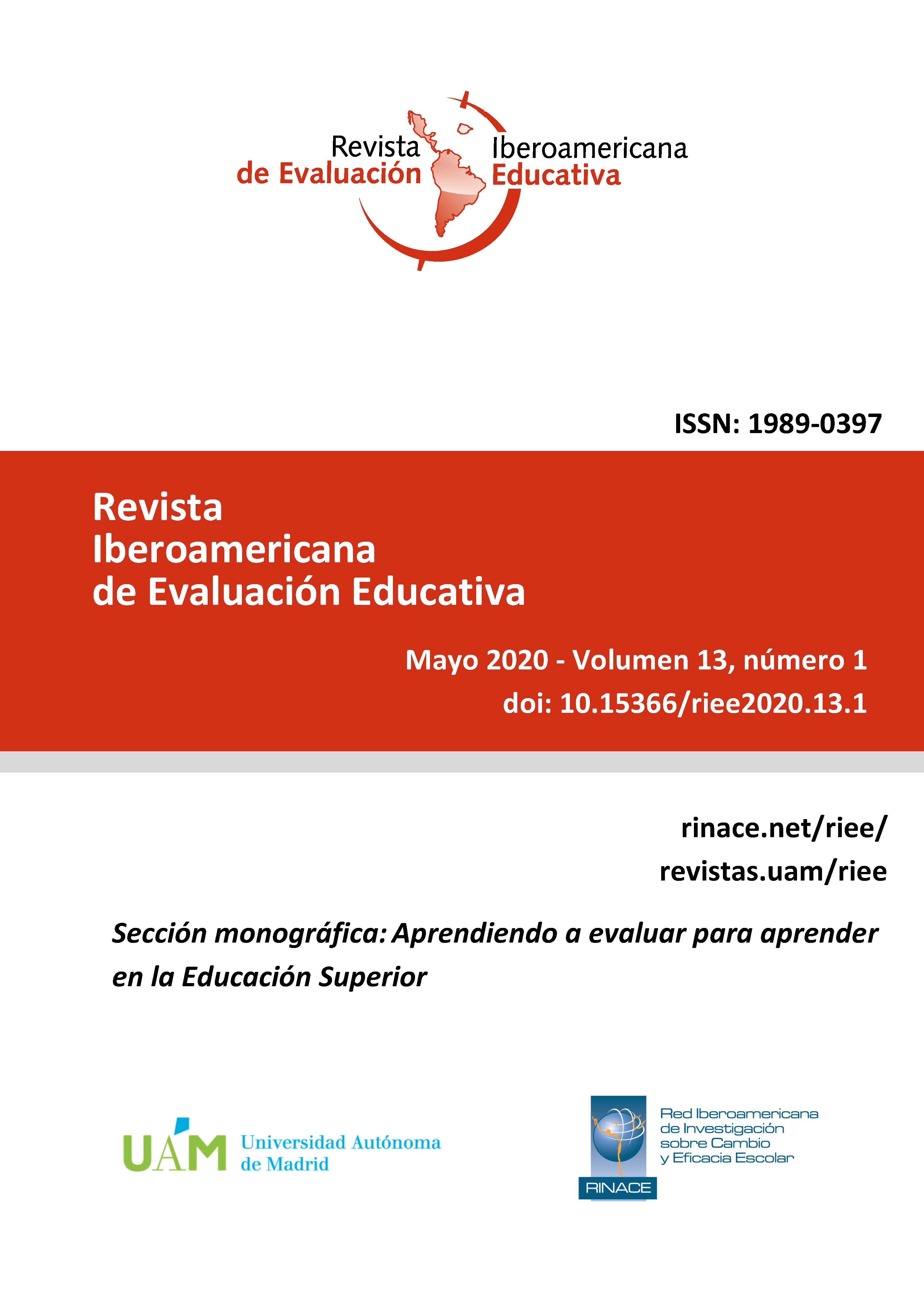Effect of the Use of the Problem Based Learning Teaching Strategy in the Development of Comprehension Skills and Analysis of Descriptive Statistics
Keywords:
Problem based learning, Teaching strategy, Comprehension and analysis skills, Descriptive statistic, Standardized testsCopyright (c) 2020 Iberoamerican Journal of Educational Evaluation

This work is licensed under a Creative Commons Attribution-NonCommercial-NoDerivatives 3.0 Unported License.
Abstract
School must prepare students in an integral way in order to serve and contribute to the improvement of society. The profile report of the Department of Education of Puerto Rico (DEPR) during 2015-2018 revealed that students do not mastered math basic skills. A decrease in standardized tests results is evidenced. This article presents the results of an investigation to determine the effect of the Problem Base Learning (PBL) teaching strategy in the development of comprehension and analysis skills in descriptive statistics in tenth grade students at a public school in the central region of Puerto Rico. A quantitative, quasi-experimental approach was used. The sample was selected by availability, for a total of 48. 25 students were in the control group (CG) while 23 were in the experimental group (EG). Data was obtained through a pretest and posttest about descriptive statistic. The data was analyzed using descriptive statistic (independent test t, paired test t and lineal regression). Results showed that the use of the PBL strategy had a positive effect in the development of the comprehension and analysis skills in descriptive statistic. Students from the experimental group performed higher in the posttest than those from the control group.
Downloads
References
American Psychological Association. (2016). An introduction to APA Style: A Student
guide for the 6th edition of the APA Publication Manual. Washington, DC: APA.
Ausubel, D. (2002). Adquisición y retención del conocimiento: Una perspectiva cognitiva. Barcelona: Ediciones Paidós Ibérica.
Barrows, H. (1986). Taxonomy of problem based learning methods. Medical Education, 20, 481-486.
https://doi.org/10.1111/j.1365-2923.1986.tb01386.x
Bernabeu, M. D. y Cónsul, M. (2004). Similitudes entre el proceso de convergencia en el ámbito de la educación de la educación superior europea y la adopción del aprendizaje por problemas en la EUI Vall d'Hebron de Barcelona. Barcelona: Barcelona ediciones.
Bloom, B. (1956). Taxonomy of educational objectives: Handbook I, The cognitive domain. Nueva York, NY: David McKay.
Boss, S. (2011). Project based learning: A short history. Recuperado de www.edutopia.org/projec-based-learning-history
Carmona, M., Conesa, M. y Ros, M. (2014). Valoración del Aprendizaje Basado en Problemas por los alumnos: Diferencias por sexo. Historias y Comunicación Social, 19(8), 725 - 734.
https://doi.org/10.5209/rev_HICS.2014.v19.44997
Cronbach, L. J. (1951). Coefficient alpha and the internal structure of test. Psychometrika, 16(3), 297-334.
https://doi.org/10.1007/BF02310555
Delgado, I. (2016). El rol de la colaboración y el Aprendizaje Basado en Problemas mediante la Teoría de Actividad (CHAT): Un estudio de caso con estudiantes de noveno grado. ProQuest Dissertations and Theses,76(9), 233-255.
Departamento de Educación de Puerto Rico. (2016). Revisión Marco Curricular del Programa de Matemática. Recuperado de http://de.gobierno.pr/files/MARCO_CURRICLAR_MATEMATICAS.pdf
Departamento de Educación de Puerto Rico. (2018). El perfil escolar. Departamento de Educación de Puerto Rico. Recuperado de http://www.de.gobierno.pr/el-perfilescolar
Fuentes, V. y Pérez, C. (2013). Estudio comparativo entre metodologías: Aprendizaje Basado en Problemas y tradicional en módulos de enseñanza. Revista Educativa Ciencias de la Salud, 10(2), 107-113.
Gutiérrez, C. (2012). Análisis comparativo de metodologías de aprendizaje colaborativo, JIGSAW y Aprendizaje Basado en Problemas (ABP): Haciendo uso de objetos de aprendizaje reutilizables, para el aprendizaje de la geometría, en los alumnos de primero medio. Santiago de Chile: Universidad de Chile.
Heredia, Y. y Olivares, S. (2012). Desarrollo del pensamiento crítico en ambientes de Aprendizaje Basado en Problemas (ABP) en estudiantes de educación superior. Revista Mexicana de Investigación Educativa, 17(54), 759-778.
Hernández-Sampieri, R., Fernández-Collado, C. y Baptista-Lucio, P. (2010). Metodología de la investigación. Ciudad de México: Mc Graw-Hill.
Labra, P. (2011). El enfoque ABP en la formación inicial docente de la Universidad de Atacama: El impacto en el quehacer docente. Estudios Pedagógicos, 37(1), 167-185.
https://doi.org/10.4067/S0718-07052011000100009
Moreira, M. (1993). La teoría del aprendizaje significativo de David Ausubel. Enfoques Didácticos, 1. Recuperado de https://bit.ly/33O0PCy
Ornstein, A. y Levine, D. (1985). An introduction to the foundations of education. Boston, MA: Houghton Mifflin.
Padilla, I. (2009). Efecto de la estrategia del Aprendizaje Basado en Problemas en el desarrollo de pensamiento y aprovechamiento académico de los estudiantes. Tesis doctoral, Universidad Interamericana de Puerto Rico, Puerto Rico.
Pantoja, J. y Covarrubias, P. (2013). La enseñanza en el bachillerato a partir del aprendizaje basado en problemas. Perfiles Educativos, 35(139), 93-109.
https://doi.org/10.22201/iisue.24486167e.2013.139.35714
Savery, J. y Duffy, T. (1996). Problem-Based Learning: An instructional model and its constructivist framework. Educational Technology, 2(3), 135-148.
Soto, A., González, A. y Figarella, F. (2016). Aprendizaje Basado en Problemas para desarrollar destrezas de conocimiento, alfabetización y competencias ciudadanas en el nivel elemental. Revista Actualidades Investigativas en Educación, 16(3), 1-34. https://doi.org/10.15517/aie.v16i3.26063
Velázquez, L. y Figarella, F., (2012). La problematización en el aprendizaje. Tres estrategias para la creación de un currículo auténtico. Puerto Rico: Isla Negra.

